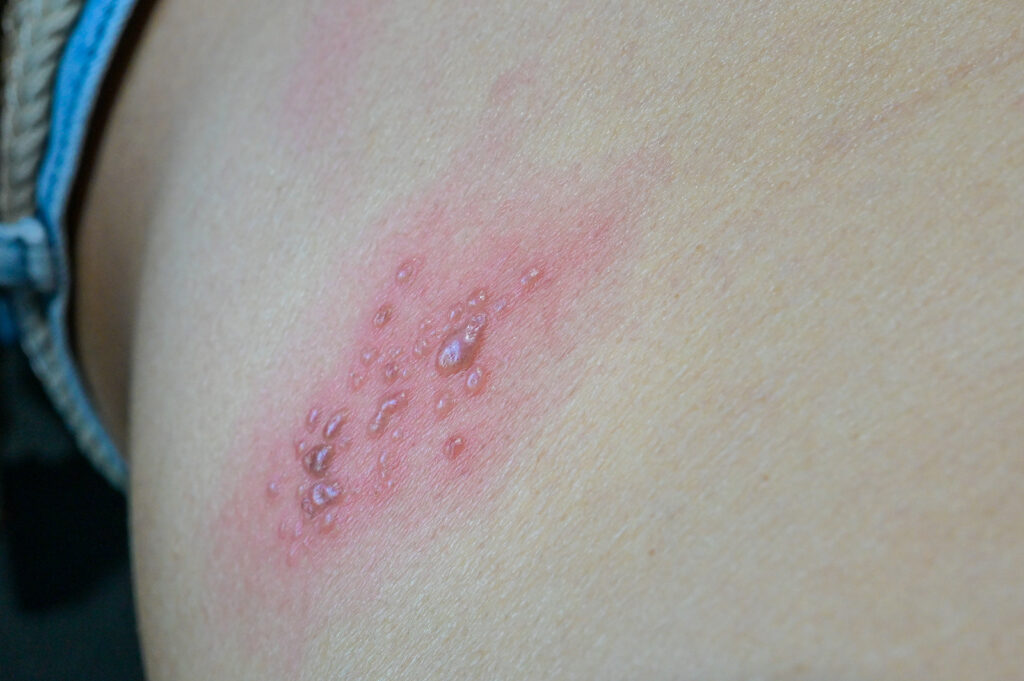By Lucy Piper, medwireNews Reporter
medwireNews: The adjuvanted herpes zoster subunit vaccine induces both humoral and cellular immunity in patients with systemic lupus erythematosus (SLE), without increasing the risk of disease flare, suggests research from South Korea.
“The findings of this study encourage the use of herpes zoster subunit vaccine in patients with SLE”, say Eun Bong Lee, from Seoul National University College of Medicine, and colleagues.
“However, further validation through a larger clinical trial is warranted to investigate the efficacy in preventing herpes zoster in these patients.”
The researchers randomly assigned 60 patients, aged at least 19 years with clinically stable SLE, who had received a stable dose of at least one immunosuppressive drug for 4 weeks or longer, to receive either 0.5 mL of the herpes zoster vaccine or placebo. This was followed by a second dose 8 weeks later.
The mean age of the participants was 48.7 years, 93% were women, and all were of Korean ethnicity. The duration of SLE was shorter among patients receiving the vaccine, at a mean of 14.3 years, compared with 20.2 years for patients receiving placebo.
The 49 patients in the vaccine group were significantly more likely than the 11 patients in the placebo group to meet the primary outcome of having a positive humoral response 4 weeks after the second vaccine dose, at 98% versus 0%. This was defined as a fourfold greater increase in anti-glycoprotein E antibody concentrations from baseline for those who were initially seropositive – 43% of the vaccine group and 0% of the placebo group – or above 97 mIU/mL for the participants who were initially seronegative.
Lee et al note that the 98% rate of positive humoral response is “similar to that observed in the general population (97.5%)”.
The rates of positive humoral response 8 weeks after the first dose were also higher for the vaccine than the placebo group, at 78% versus 0%.
A significant difference in the proportion of patients who had a positive cell-mediated immune response was only seen after the second dose, occurring in 67% of those in the vaccine group versus 18% of those in the placebo group at 4 weeks afterwards. Patients were considered to have a positive cell-mediated immune response if they had at least a twofold increase in the number of glycoprotein E-specific CD4+ T cells compared with before vaccination or a twofold or greater increase above a cutoff of 320 cells per 106 CD4+ T cells.
Unlike the humoral response, this rate was below the 93% rate seen in the general population, the team comments.
“Considering the dominant role of cellular immunity in preventing varicella zoster virus reactivation as herpes zoster, it remains uncertain whether a humoral vaccine response alone provides effective protection against herpes zoster in patients with SLE”, say Lee and team.
They add: “Further studies are required to assess the potential benefits of additional or higher doses of the herpes zoster subunit vaccine, or temporary interruption of immunosuppressive treatment to enhance the vaccine response among those without satisfactory cell-mediated immunity.”
Nevertheless, the “vaccine was well tolerated with no increased risk of SLE flare,” they remark. Disease flares occurred in one patient in the placebo group but none of those in the vaccine group, and throughout the study the two groups “did not substantially differ regarding disease activity scores”, the researchers observe.
Local and systemic reactogenicity were common among patients given the vaccine, however; with moderate injection site pain and swelling reported after the first dose in 47% and 22% of patients receiving the vaccine, respectively, compared with none of the patients receiving placebo. After the first dose, fever was only reported by patients in the vaccine group (10%) and they were more likely than those in the placebo group at this time to have fatigue (49 vs 9%), headache (39 vs 0%), arthralgia (22 vs 9%) and myalgia (53 vs 18%).
Discussing the findings in a related comment, Laura Boekel (Amsterdam Rheumatology and Immunology Center, the Netherlands) says that the findings indicate that in addition to high-risk patients, “physicians should strongly consider herpes zoster vaccination in patients with SLE, preferably during the early stages of the disease.”
News stories are provided by medwireNews, which is an independent medical news service provided by Springer Healthcare Ltd. © 2024 Springer Healthcare Ltd, part of the Springer Nature Group
Lancet Rheumatol 2024; 6: e352–e360
Lancet Rheumatol 2024; 6: e331–e333

